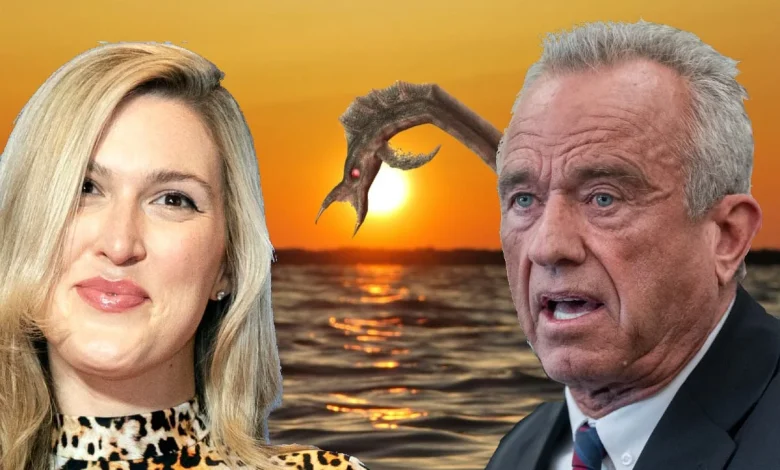The Only Olivia Nuzzi-RFK Jr. Take You Need to Read

“I would not like to think about the worm in his brain,” Olivia Nuzzi writes about Robert F. Kennedy Jr.in her forthcoming book, “American Canto.” “I loved his brain. I hated the idea of an intruder therein.” (Kennedy denied it was a worm, Nuzzi writes. “Baby, don’t worry,” she says he told her. “It’s not a worm.”)
Nuzzi’s book, recently excerpted in Vanity Fair, is provoking a good deal of discussion in media circles, much of it unkind. Her prose is risibly purple, a common critique goes, the writing bad enough that it suggests an absence of friends who might have saved her from publishing such goofy dreck.
Less attention has been paid to the provocative question raised by the passage above: What does it mean to love someone who has, or has had, a parasitic worm in their brain? It is in the rippled rills and labyrinthine architecture of the brain that identity itself is alchemized. An “intruder” in those halls casts doubt on the integrity of identity. When you love a person with a worm in their brain, is it the beloved’s brain that you love? Is it the worm therein? Is it rather, to transcend that dichotomy, what we might style the worméd brain, the Gehirnverwurmung?
Perhaps unsurprisingly, popular discourse to date is proving itself ill-equipped to wrestle with these questions. But there is a rich if neglected tradition exploring the questions of identity, agency, love, and lust in the context of parasitic brainworms.
Give us your email to read the full story
Sign up now for our free newsletters.
Sign up





